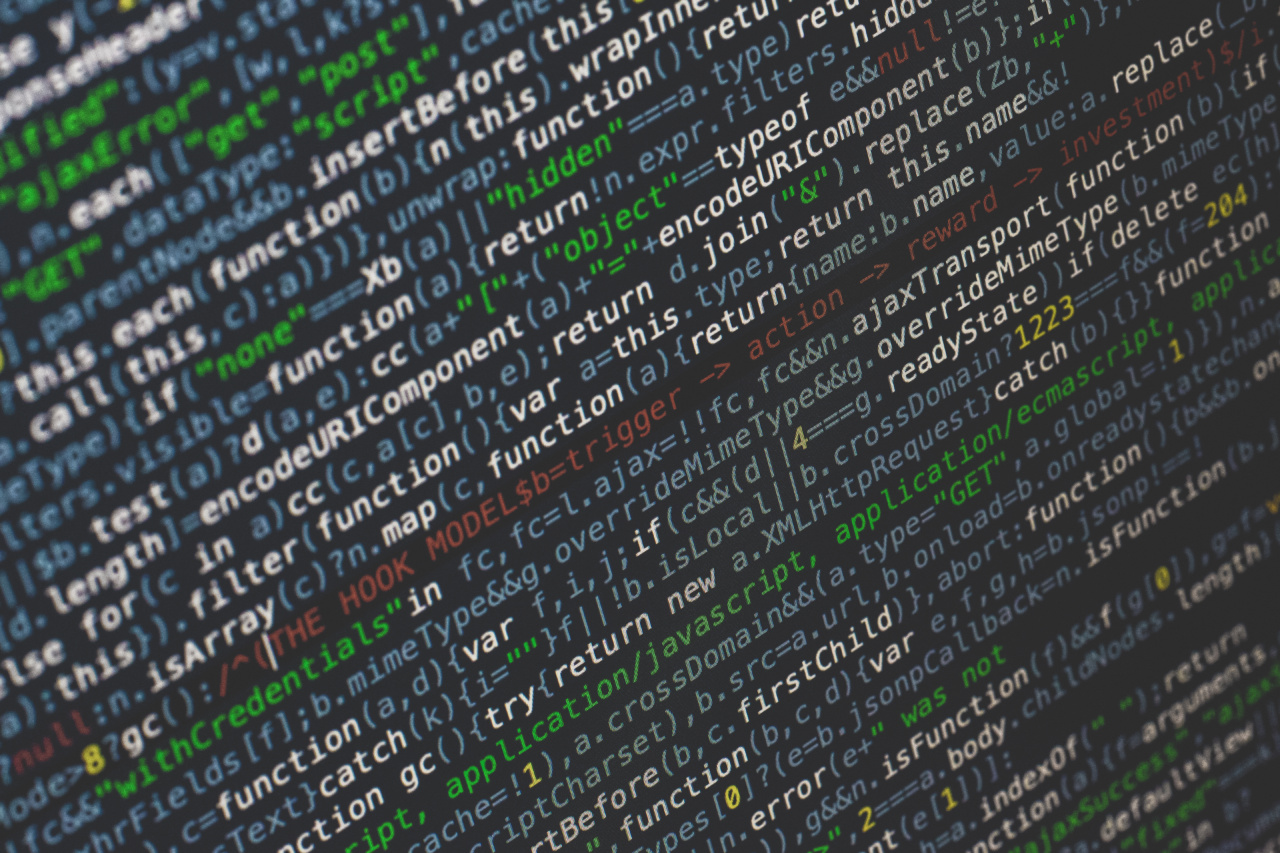Programming is an essential skill in today’s digital age. As technology continues to evolve, coding becomes increasingly important for various industries.
Europe, known for its innovation and advancements, has developed several fundamental coding instructions that every programmer should be aware of. These instructions serve as the building blocks for creating robust and efficient software solutions. In this article, we will explore 12 fundamental European coding instructions that can help programmers write high-quality code.
1. Follow the DRY Principle
The DRY (Don’t Repeat Yourself) principle is a fundamental coding instruction that emphasizes code reusability. European programmers understand the significance of writing code that is concise and doesn’t repeat similar logic.
By following the DRY principle, codebase maintenance becomes more manageable, reducing the chances of introducing bugs and improving overall productivity.
2. Use Descriptive Variable and Function Names
Europeans emphasize the importance of using descriptive variable and function names. A well-named variable or function enhances code readability and comprehension.
It is essential to choose names that accurately describe the purpose or functionality of the element, eliminating the need for excessive comments or guesswork.
3. Optimize Code Efficiency
European coding instructions emphasize the significance of optimizing code efficiency. This includes using appropriate data structures and algorithms to achieve optimal performance.
By understanding the complexities of various algorithms and data structures, European programmers can successfully write code that executes tasks in the most efficient manner.
4. Ensure Code Modularity
Modularity refers to the practice of breaking code into smaller, logical modules. European coding instructions stress the importance of creating modular code as it enhances code maintainability and reusability.
Modularity also allows for easier collaboration among programmers by dividing complex tasks into smaller, manageable parts.
5. Implement Error Handling Mechanisms
Error handling is crucial in software development to identify and address issues that may arise during program execution.
European programmers prioritize the implementation of robust error handling mechanisms to provide meaningful feedback to users and ensure graceful degradation of the software in unforeseen situations.
6. Adhere to Coding Standards
Coding standards are essential as they define a set of guidelines and best practices for writing code. European coding instructions emphasize the adherence to these standards to promote consistency and maintainability across the codebase.
Following coding standards also facilitates easier code reviews and promotes a collaborative coding environment.
7. Write Readable and Well-Structured Code
Readable and well-structured code is crucial for code maintainability and efficient collaboration among programmers.
European programming instructions emphasize writing code that is easily understood by others, reducing the time and effort required for comprehending complex logic. Well-structured code enhances code readability and encourages cleaner programming practices.
8. Document Code Effectively
Documentation plays a vital role in software development. European coding instructions stress the importance of documenting code to provide clear explanations of its functionality.
Effective documentation enables other programmers to understand and work with the codebase efficiently. It also facilitates code maintenance and troubleshooting.
9. Perform Regular Code Reviews
Code reviews are critical to maintaining code quality and identifying potential bugs or issues.
European programmers understand the significance of regular code reviews to ensure that code adheres to coding standards, follows best practices, and meets project requirements. Code reviews also provide an opportunity for knowledge sharing and learning among team members.
10. Embrace Continuous Integration and Testing
Continuous integration (CI) and testing are essential practices in the European coding culture. CI involves regularly merging code changes into a shared repository to detect integration issues early.
European programmers also emphasize the importance of automated testing to verify the correctness and stability of their code. This ensures that software solutions are reliable and meet the desired quality standards.
11. Prioritize Security
European coding instructions emphasize the prioritization of software security. Programmers are taught to follow secure coding practices, adhere to encryption standards, and implement authentication mechanisms.
By prioritizing security, European programmers contribute to building secure software solutions that protect user data and prevent vulnerabilities.
12. Foster Collaborative Coding Culture
European coding instructions emphasize the importance of a collaborative coding culture. Programmers are encouraged to communicate effectively, share knowledge, and provide constructive feedback.
Collaborative coding creates an environment where programmers can learn from each other, improve their skills, and deliver high-quality software solutions.































